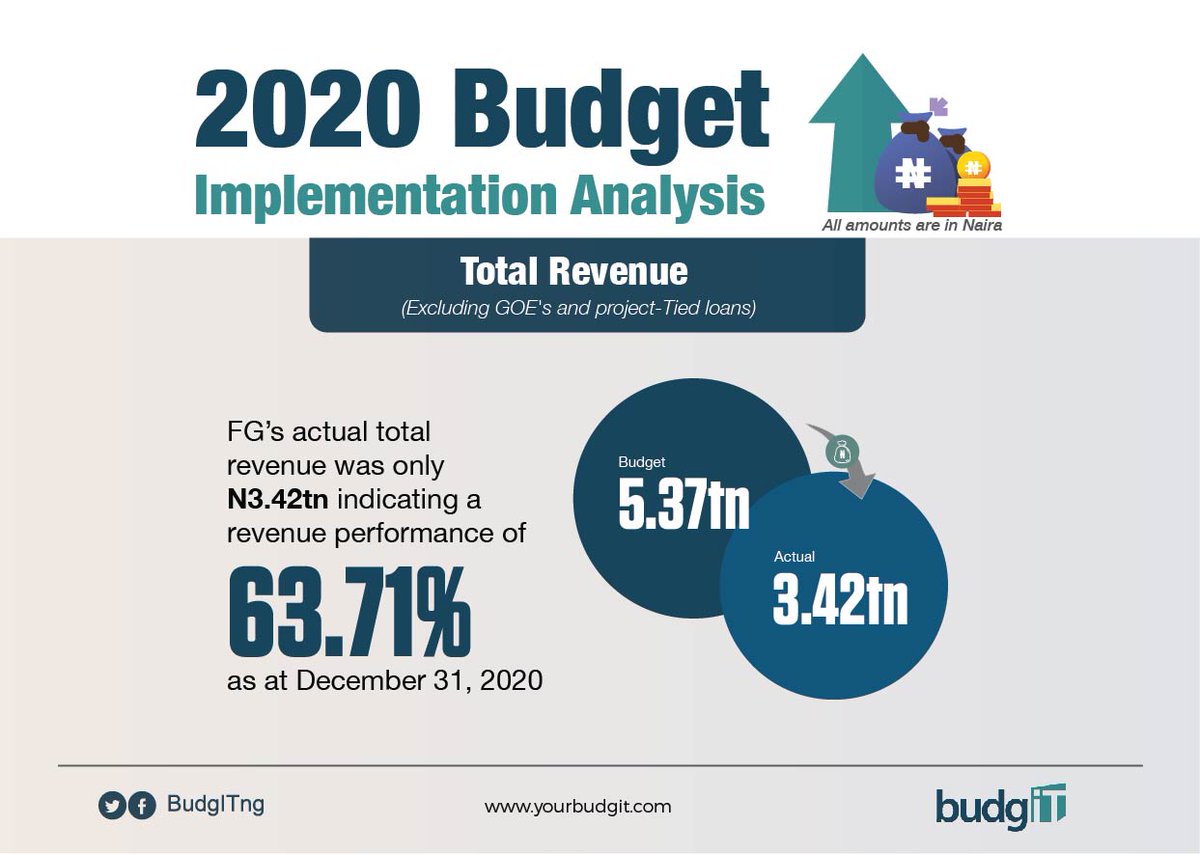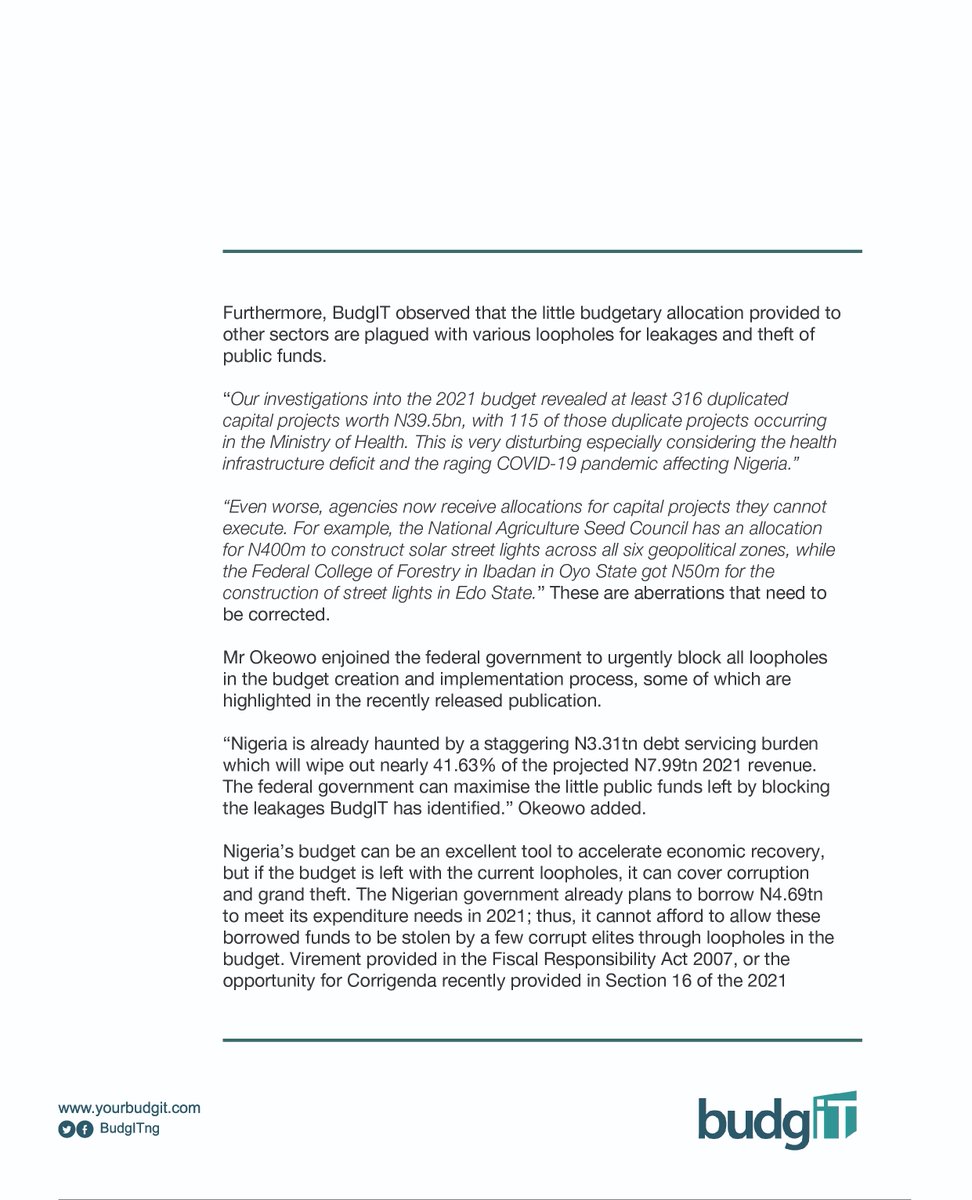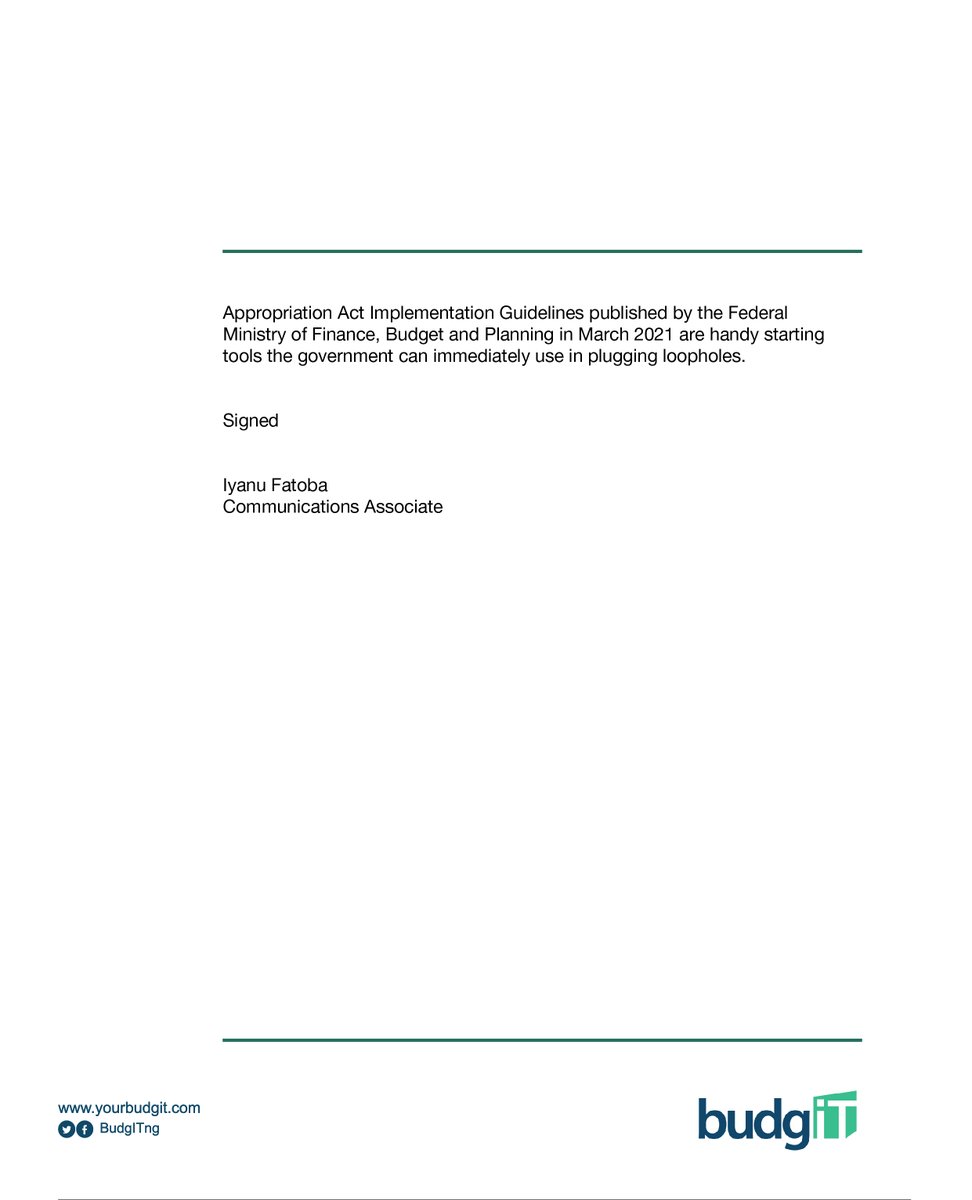
BREAKING
Our 2020 Budget Implementation Analysis is out!
Debt servicing wiped off 97% (N3.34tn) of FG's total revenue(N3.42tn) in 2020.
Total expenditure stood at N10.01tn. This means nearly all FG’s salaries, overhead & CAPEX were financed with loans & CBN support.
THREAD
Our 2020 Budget Implementation Analysis is out!
Debt servicing wiped off 97% (N3.34tn) of FG's total revenue(N3.42tn) in 2020.
Total expenditure stood at N10.01tn. This means nearly all FG’s salaries, overhead & CAPEX were financed with loans & CBN support.
THREAD

In 2020, FG projected a total revenue of N5.37tn; however, the actual total revenue eventually stood at N3.42tn. This represents a 63.71% revenue performance. #AskQuestions 

FG’s revenue from oil had a significant boost.
FG’s budget was anchored on an oil revenue projection of N1.01tn, but as of Dec 31, 2020, actual oil revenue arrived at N1.41tn.
This surpassed the amended oil projections for the 2020 fiscal year #AskQuestions
FG’s budget was anchored on an oil revenue projection of N1.01tn, but as of Dec 31, 2020, actual oil revenue arrived at N1.41tn.
This surpassed the amended oil projections for the 2020 fiscal year #AskQuestions

For non-oil revenue, FG’s actual inflow stood at N1.26tn, despite projections of N1.62tn. This represents a 77.2% performance as of Dec 31, 2020
#AskQuestions
#AskQuestions

Meanwhile, FG claimed that it earned ZERO revenue from Stamp Duties and Domestic Recoveries+Assets+Fines, despite combined projections of N437bn. #AskQuestions 

Despite low revenue earned (N3.42tn), FG’s total expenditure was N10.01tn, representing 93% performance when compared with the budgeted amount of N10.81tn.
Of this 10.01tn, N4.65tn was spent on non-debt recurrent expenditure. #AskQuestions
Of this 10.01tn, N4.65tn was spent on non-debt recurrent expenditure. #AskQuestions

A critical highlight with non-debt recurrent expenditure is the actuals on Pensions. FG disbursed only N359bn of the N536bn budget for pension. This means that many pensioners didn't get their pensions during the heat of COVID-19. #AskQuestions 

The cost of servicing FG's debt is drowning Nigeria as the cost continues to grow, gulping a total of N3.34tn (97%) from the total revenue.
This means that for every N100 that FG made in 2020, N97 was spent on debt servicing. #AskQuestions
This means that for every N100 that FG made in 2020, N97 was spent on debt servicing. #AskQuestions

CAPEX keeps getting the short end of the stick, as ONLY N1.60tn was devoted to capital projects in 2020. This is not acceptable!
Recall that FG had a CAPEX plan (exclusive of transfers) of N2.69tn, this means only 59.5% (slightly over half) of the 2020 projection was actualised.
Recall that FG had a CAPEX plan (exclusive of transfers) of N2.69tn, this means only 59.5% (slightly over half) of the 2020 projection was actualised.

The budget of N428.03 for Statutory Transfers in 2020 was disbursed. However, there is no breakdown or implementation report of how this money was spent/disbursed. #AskQuestions 

• • •
Missing some Tweet in this thread? You can try to
force a refresh




















